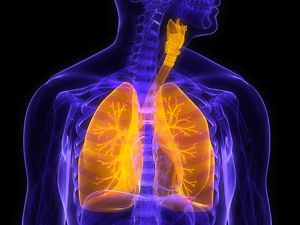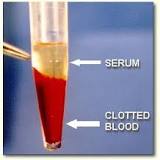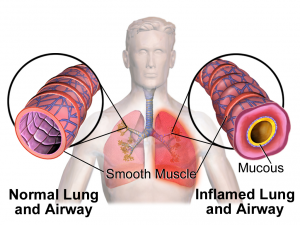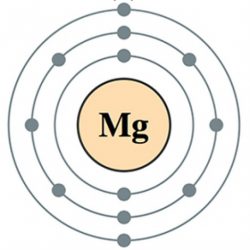 Have you ever wondered why so many children seem to get asthma nowadays? Is it just a coincidence that the numbers are going up? ‘Asthma and Children’ discusses the direct correlation between asthma and what we eat and the nutrients that are available, or should I say unavailable, in our modern diet.
Have you ever wondered why so many children seem to get asthma nowadays? Is it just a coincidence that the numbers are going up? ‘Asthma and Children’ discusses the direct correlation between asthma and what we eat and the nutrients that are available, or should I say unavailable, in our modern diet.
What is asthma exactly?
Asthma is a disease of the lungs where the airways become inflamed and narrowed. This causes coughing and wheezing with a shortness of breath, making it difficult to breath. It is an uncomfortable and sometimes frightening condition. Sufferers often think they are suffocating and with this stress and fear, an attack can be exacerbated.
Asthma seems to have really increased over past decades with the worldwide figures at the last count now at 300 million. According to the CDC (Centers for Disease Control and Prevention) in the US, the latest asthma data shows current asthma numbers for US at:
- Adults – 17.717 million which is 7.4% of the adult population.
- Children – 6.292 million which is 8.6% of the child population (0-18 years)
- Adults and children – 24.009 million, 7.7% of the total population.
These are quite staggering figures but some researchers say the numbers are as high as 15% of all children in the US, but nevetheless the data are shocking.
 Cleaner world hypothesis
Cleaner world hypothesis
So what’s going on? There is the ‘cleaner world’ hypothesis which some researchers say has caused the surging global increases of asthma. The notion being that exposure in youngsters to various viruses, parasites and bacteria actually increases their immune system, keeping it strong and able to fight future infections. But now, in our clean sanitary world, the immune system is, in effect, starved of ‘training’ and thus is weakened allowing diseases to take hold more readily.
This hygiene hypothesis was put up by a British epidemiologist who worked out that the more children in a family, the less likely their rates of hay fever and eczema. (Asthma sufferers often suffer from eczema before succumbing to asthma). His theory was that large families tended to exchange infections, colds and flu more often, giving their immune system a good boost of pathogens and antigens thus strengthening their immunity to further attacks.
This hypotheses has fallen on stoney ground and it is now recognised that most researchers and medics just don’t seem to know why asthma has become so rampant.
Perhaps the answer is more simple
Perhaps they should be looking elsewhere for the answer. Perhaps the answer is simply to do with what we put into our bodies as a way of nourishment. Maybe more notice should be taken of research that was done earlier, research which has come up with a viable explanation.
 Magnesium and asthma
Magnesium and asthma
The above CDC statistics are tragic but there is a striking coincidence here. As the figures for asthma sufferers rise, the amount of magnesium (Mg) in our food supply and our soils has declined, to critical levels.
There have been many studies undertaken which actually link Mg deficiency to lung disorders. This research also proves that repleting Mg levels to optimum will improve lung function and reduce levels of histamines and stress hormones. These become elevated causing muscle spasms and inflamation, which in turn narrow the airways. Mg controls the release of histamines and stress hormones. It also relaxes the muscles and prevents inflamation. It will also relax the mind and calm the asthmatic which in itself will reduce the seriousness of an attack. Mg can actually stop an asthma attack before it starts but with a deficiency, the asthma sufferer will be more prone.
Prescribed drugs for asthma
The drugs prescribed for asthma mainly consist of ventolin (albuterol), beta-blockers and corticosteroids. The problem with these drugs is that they are renowned magnesium wasters, so one of the side effects is that they can cause a severe Mg deficiency. This has its own dangers such as arrhythmias which can cause sudden death.¹ Apart from its known side effects, the drug aminophylline not only depletes Mg but also suppresses  vitamin B6, necessary for Mg function. As for the commonly used drug Prednisone, this also depletes Mg as well as causing fluid retention, sodium retention, increasing urinary excretion of zinc, vitamin C and vitamin K and in addition suppressing vitamin D by default because vitamin D needs Mg to activate its storage form.²
vitamin B6, necessary for Mg function. As for the commonly used drug Prednisone, this also depletes Mg as well as causing fluid retention, sodium retention, increasing urinary excretion of zinc, vitamin C and vitamin K and in addition suppressing vitamin D by default because vitamin D needs Mg to activate its storage form.²
Intravenous Mg sulphate
Mg sulphate has been used successfully in the treatment of asthma when conventional drugs have been ineffictive. A study done in Europe gave IV (intravenous) Mg sulphate to a group of children who had deteriorated despite being administered drug medication. A placebo was given to half the group. Those given the Mg had lower clinical asthma scores and they had a significant improvement in lung function over a 1½ hour period.³ This indicates that Mg is a safe medication for asthma sufferers and can be administered when conventional drugs do not work.
 Intracellular Mg connection
Intracellular Mg connection
In 1998, another study showed a connection between intracellular Mg levels and airway spasms. It was found that asthma sufferers who had low cellular Mg levels had increased bronchial spasms. This was confirmation that not only was Mg useful in treating asthma by dilating the bronchials but a lack of Mg was probably a cause of the condition.4
It may be a simpler, cheaper and definitely happier solution to make sure that those suffering from bronchial spasms and asthma are replete in Mg to start with. This will likely limit the asthma attacks and/or the severity and for those children and adults who always have good reserves of Mg, it could even give protection against getting asthma altogether!
A good practice would be to check for Mg deficiency in children that have succumbed to asthma. Is this done? It may be in some doctors’ surgeries and if it is, it could be a double edged sword! This is because in the US and in the UK the ‘total serum Mg test’ is generally the only test done to assess Mg within the body. The Mg RBC test is more accurate as it tests up to 40% of the body’s total Mg, but it is still not ideal and most surgeries don’t offer it anyway.
The totally useless total serum Mg test
This is the most commonly used Mg test in the UK and the US. Unfortunately, it is next to useless and invariably gives a false positive result.
 It’s no wonder that most doctors think it is very rare to be Mg deficient. They get this duff information from the results of serum tests. The tests comes back normal and patients’ records are updated to reflect this result.
It’s no wonder that most doctors think it is very rare to be Mg deficient. They get this duff information from the results of serum tests. The tests comes back normal and patients’ records are updated to reflect this result.
This is what happens when dogma and an inability to change, encumbers the medical profession, making a profound difference to a patient’s diagnosis! This mis-diagnosis could cause incalculable distress and misery for a patient that may have a simple Mg deficiency. So patients are told that Mg levels are normal and they dismiss the fact that a Mg deficiency could be the cause of their condition. This is the same for asthma as it is for many other Mg deficiency dependent diseases and ailments.
Why is this test so inaccurate?
Less than 1% of our body’s total Mg can be measured in blood serum. Most of our Mg is found in bones – around 60% and inside muscle and other cells – around 40%. If Mg drops in the extracellular fluids, there’s a danger of a heart event. Thus, the body makes sure that the amount of Mg in blood fluids is stable at all times, taking from other sources if necessary, even when bodywide levels are low. This means, even if you are deficient in this mineral, your body will keep your blood serum magnesium level normal. This is common knowledge, or should be, so why is this unreliable test done in the first place? As a point of interest, I had my Mg tested and it came back as normal, despite the fact I was very seriously Mg deficient at the time!
 A random check
A random check
I decided to randomly look at just one of the many asthma sites on the web. I came across The Asthma Center. This site has loads of information on asthma, what it is and how the condition progresses etc.. For those that are interested, they have a very useful pdf information sheet on pediatric asthma which you can download here.
I searched the site for anything relating to ‘Magnesium’. There was not one mention of it, not even one. There has been so much research now, why isn’t the medical profession using Mg in their arsenal of medications? Why are they not keeping up to date with research?
More research – University of California
Researchers from the University of California, did a study in 2010. 52 volunteers with asthma were split into 2 groups. One received a Mg supplement and the other a placebo. After the end of the study which lasted 28 weeks, researchers discovered that the supplemented group showed a distinct improvment in lung activity as well as the ability to move air in and out of their lungs. You can see the study results here: Magnesium Supplements May Benefit People With Asthma. National Center for Complementary and Alternative Medicine (NCCAM), 10 Feb. 2010. Web. 25 Feb. 2013.
 The Lancet
The Lancet
It was reported in The Lancet in 1994 that a UK study showed that those having diets low in Mg had more bronchial symptoms and self reporting of wheezing. You can see the study here: Lancet.1994 Aug 6;344(8919):357-62. [PubMed Abstract]
The problem with multivits
It must be stressed that many multivitamin supplements do not contain Mg. If they do, the amount is usually minuscule and completely unbalanced with the other vitamins and minerals included, not least calcium (Ca) which is an antagonist of Mg and needs to be balanced with it 1:1. This could be why studies, like the one below, have shown that multivitamins can be associated with asthma and allergies: Early infant multivitamin supplementation is associated with increased risk for food allergy and asthma. Pediatrics. July 2004;114:27(1)32. [PubMed Abstract]
Still sceptical?
I have mentioned just a few researches and studies done on this subject but there are many more confirming the connection between low intracellular Mg levels and the incidences of asthma. In any event, even if you are sceptical and your doctor has told you to ignore it, making sure your Mg levels are replete will do nothing but good for you and your children.
Mg’s achilles heel

A Mg deficiency is the cause of so many conditions, diseases and illnesses, eminating from so many areas of the body and brain. I think this could be Mg’s achilles heel. It does so much that many people think it can’t be true that just this one mineral can protect the future health of the population and change lives, why not change yours?
- Consequences of magnesium deficiency on the enhancement of stress reactions; preventive and therapeutic implications (a review). Seelig MS University of North Carolina. J Am Coll Nutr. 1994 Oct;13(5):429-46
- Physicians’ Desk Reference, 56th ed., Medical Economics, Oradell, NJ 2002
- Intravenous magnesium sulphate in the management of moderate to severe acute
 asthmatic children nonresponding to conventianal therapy. Gurkan F et al., Eur J Emerg Medicine, vol. 6, no. 3, pp. 201-205 1999.
asthmatic children nonresponding to conventianal therapy. Gurkan F et al., Eur J Emerg Medicine, vol. 6, no. 3, pp. 201-205 1999. - Bronchial reactivity and intracellular magnesium: a possible mechanism for the bronchodilating effects of magnesium in asthma. Dominguez LJ et al., Clin Sci (Lond). 1998 Aug;95(2):137-42
Spread the word!


Your blog does a wonderful job of pointing to the real health issues affecting all Americans, and especially the real physical causes. Like on your other posts, it’s also sad to see how corrupt Big Pharma just throws up crappy medical “medicines” that don’t work and just harm us more. Great job on showing the truth to all.
Thank you Ariel for your positive comments. Ches
Thanks for your article. I know a lot of children who fight with astma and other alergies. I know that is pretty tough . I’m glad I came across your website and find some solution that can help fight astma so I can give them some advice. Great article.
Keep up the good work
Thanks for the positive comments Karlo. Ches
Great article with supporting data. I have two family members with asthma, although I’m not sure if they are low magnesium-induced. We blame a lot of the flare-ups to environmental allergens. My home is male-dominant so you can imagine the typical struggle of trying to maintain a clean one. We live in an area where if you didn’t have asthma before, you will if you move here. I already purchase OTC magnesium supplements, but primarily used for soreness and is not taken regularly. I will definitely look into the relationship between magnesium levels and asthma – I think it’s worth it.
Hi Norma and thanks for your input. Please look into Mg more and note that some of the supplements churned out are low quality and have low bio availability. Mg oxide is one such supplement. Also multivits hardly ever have enough Mg in them, some don’t have any! You’ll notice though that calcium is in abundance. We just consume too much calcium and most of us to excess and without counterbalancing 1:1 with Mg. IMHO, Mg Chloride solution which can be added to your daily quotient of water, is by far the superior supplement with 100% bio availability. Mg citrate powder is another good supplement, especially if you suffer from digestive problems like constipation. It is also easy to administer to children because it is tasteless. You can see them both on my side panel. Some people prefer the topically applied Mg. Ancient minerals is a good supplier of this supplement. Ches
Scary stuff with the medical industry. It does seem they are often geared more toward staying within established legal guidelines versus continually questioning conventional wisdom and staying current with the latest information.
So your site provides a needed service to get the message out. As more people become aware, more questions will be asked and maybe it will effect movement.
When it comes to Magnesium, I’ve also seen articles that it helps anxiety, fatigue and can relax muscles.
Do you think it can be helpful beyond asthma?
In my mind much of the medical industry is driven by pharmaceuticals and they are driven by profits, which appear to come before the welfare of the patient. I hope my site is of use. If just one person’s health is improved from what they read here, I shall be happy. You are right about anxiety, fatigue and relaxation. Mg is the amazing relaxing and calming mineral which is necessary to counter balance calcium which causes tightness, tension and contraction. Both are vital but calcium is too available in our modern diet with Mg scarce in comparison. Hence all the diseases, not least cardiovascular disease, often caused by a simple Mg deficiency, a deficiency that 80% of the population suffer from. Asthma is just one of those diseases. No wonder so many of us are sick! Thanks for your input. Ches